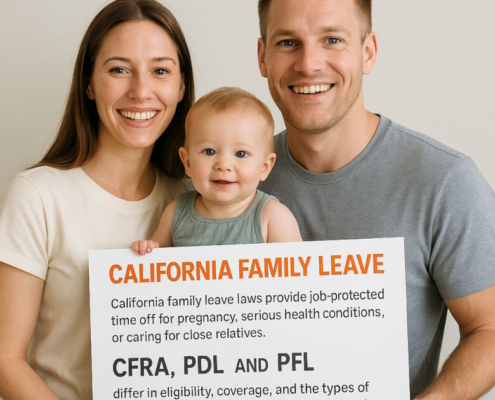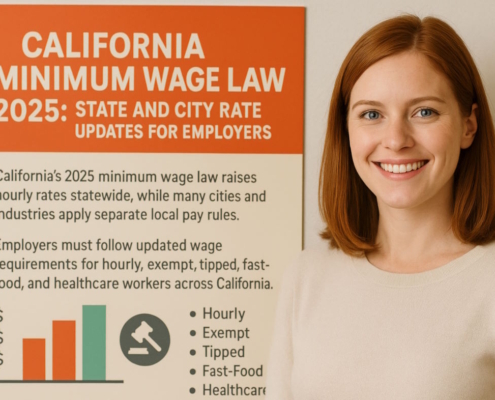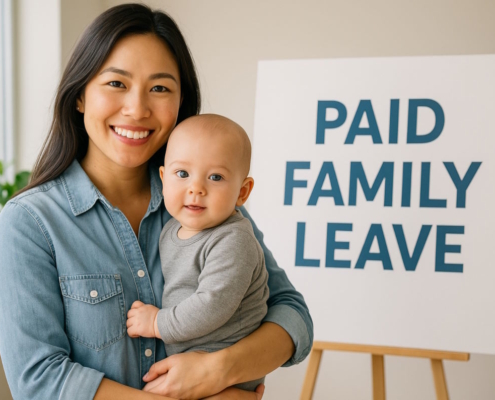In recent years, a significant question has arisen regarding whether employers can compel employees to arbitrate claims under the Private Attorneys General Act (PAGA) and whether employees can still pursue these claims in court, even when an arbitration agreement is in place. This issue has been the subject of considerable debate, with courts weighing in at both the federal and state levels.
Can Employers Force Employees to Arbitrate PAGA Claims?
The California Supreme Court’s ruling in Adolph v. Uber Technologies has brought much-needed clarity to this question. According to this decision, a plaintiff who is compelled to arbitrate individual PAGA claims does not lose the standing to continue litigating non-individual claims in court. The ruling directly contrasts with a decision from the U.S. Supreme Court, which reached a different conclusion a year earlier in Viking River Cruises, Inc. v. Moriana. The U.S. Supreme Court ruled that employers could require employees to arbitrate individual PAGA claims under the Federal Arbitration Act (FAA). Furthermore, once the individual claims were arbitrated, the Court stated that employees lacked standing to pursue any remaining non-individual claims in court.
This difference in rulings created a state-federal divide regarding PAGA arbitration, with Adolph establishing that, under California law, an employee does not forfeit the right to pursue non-individual claims just because their individual claims have gone to arbitration. This decision essentially preserves an employee’s right to continue seeking penalties on behalf of other aggrieved employees, provided they meet certain criteria under PAGA.
Can Employees Pursue PAGA Claims in Court Even with an Arbitration Agreement?
One of the key takeaways from the Adolph case is that employees can indeed pursue non-individual PAGA claims in court, even when an arbitration agreement requires them to arbitrate their individual claims. The California Supreme Court’s reasoning was rooted in the legislative intent behind PAGA. The Court emphasized that PAGA was designed to enable employees to enforce the state’s Labor Code on behalf of themselves and others. If an employee has suffered a violation under the Labor Code, they retain standing as an “aggrieved employee,” regardless of whether their individual claims are arbitrated.
In Viking River, the U.S. Supreme Court suggested that California courts or the legislature should decide how to handle non-individual PAGA claims when individual claims are sent to arbitration. Justice Sonia Sotomayor noted in her concurrence that the issue would ultimately need to be resolved under California state law. The Adolph decision is the state’s answer to that question, allowing non-individual claims to continue in court, even after individual claims are arbitrated.
Can Employers Compel PAGA Claims to Arbitration?
Employers can compel individual PAGA claims to arbitration if there is an arbitration agreement in place, as confirmed by both Viking River and Adolph. However, the Adolph decision limits the impact of this by preserving the plaintiff’s standing to bring non-individual claims in court. This ruling effectively prevents employers from entirely removing PAGA cases from the court system through arbitration agreements.
Employers frequently use arbitration agreements to manage disputes with employees more efficiently and avoid the potentially higher costs of litigation. In response to the Viking River decision, many employers revised their arbitration agreements to specifically prevent employees from bringing PAGA claims in court. However, in light of Adolph, such efforts may now need to be reconsidered. Employers may still compel individual PAGA claims to arbitration, but they cannot compel non-individual claims to arbitration in the same way.
Key Details from the Adolph v. Uber Technologies Decision
In Adolph, the plaintiff worked as a delivery driver for Uber Eats and claimed that he and other drivers were misclassified as independent contractors, which violated California’s Labor Code. Uber argued that the plaintiff’s claims should be arbitrated based on the company’s arbitration agreement, which was part of its Technology Services Agreement. The company contended that once the individual claims were arbitrated, the plaintiff would lose standing to represent other employees in non-individual PAGA claims.
The California Supreme Court rejected Uber’s argument, ruling that arbitrating individual PAGA claims does not extinguish the plaintiff’s standing to pursue non-individual claims. The Court reasoned that an employee remains “aggrieved” as long as they were subjected to one or more violations of the Labor Code, even if those violations were resolved in arbitration. This decision underscores the state’s intent to allow employees to act as “deputies” of the state in enforcing labor laws, ensuring that employers cannot completely escape PAGA claims through arbitration.
What Happens When Individual PAGA Claims Are Sent to Arbitration?
The Adolph decision clarified that when individual PAGA claims are arbitrated, the outcome of the arbitration can influence whether the employee retains standing to pursue non-individual claims. If the arbitrator finds that the plaintiff is an “aggrieved employee,” this finding will be binding on the lower court, allowing the employee to continue representing other employees in the non-individual claims. Conversely, if the arbitrator concludes that the plaintiff is not an aggrieved employee, the plaintiff could lose standing to bring the non-individual claims altogether.
This framework allows courts to avoid re-litigating issues already resolved in arbitration, providing some measure of finality to the arbitration process while still preserving the plaintiff’s ability to seek penalties on behalf of others if they meet the aggrieved employee criteria.
Future Considerations for Employers
The Adolph decision has significant implications for employers in California. Following this ruling, employers who have used arbitration agreements to manage PAGA claims should reassess their agreements with labor and employment counsel. Specifically, employers may want to revise their agreements to explicitly address the court’s ruling, such as including provisions that allow non-individual PAGA claims to be stayed pending the outcome of arbitration.
Additionally, the future of PAGA itself is uncertain, as California voters will decide in November 2024 whether to repeal PAGA and replace it with the California Fair Pay and Employer Accountability Act (FPEAA). The FPEAA would eliminate employees’ private right of action under PAGA and instead grant enforcement authority to the California Division of Labor Standards Enforcement (DLSE). If enacted, this would dramatically change the legal landscape for wage and hour claims in California, possibly reducing the impact of arbitration agreements on such disputes.
Conclusion
The legal landscape surrounding PAGA and arbitration agreements continues to evolve, especially in California. The Adolph decision ensures that employees can still pursue non-individual claims in court, even after their individual claims are arbitrated, affirming California’s legislative intent to empower employees to enforce labor laws on behalf of the state. Employers must stay informed of these developments and be prepared to adjust their strategies accordingly, particularly as the possibility of PAGA’s repeal looms in the upcoming 2024 ballot initiative.































